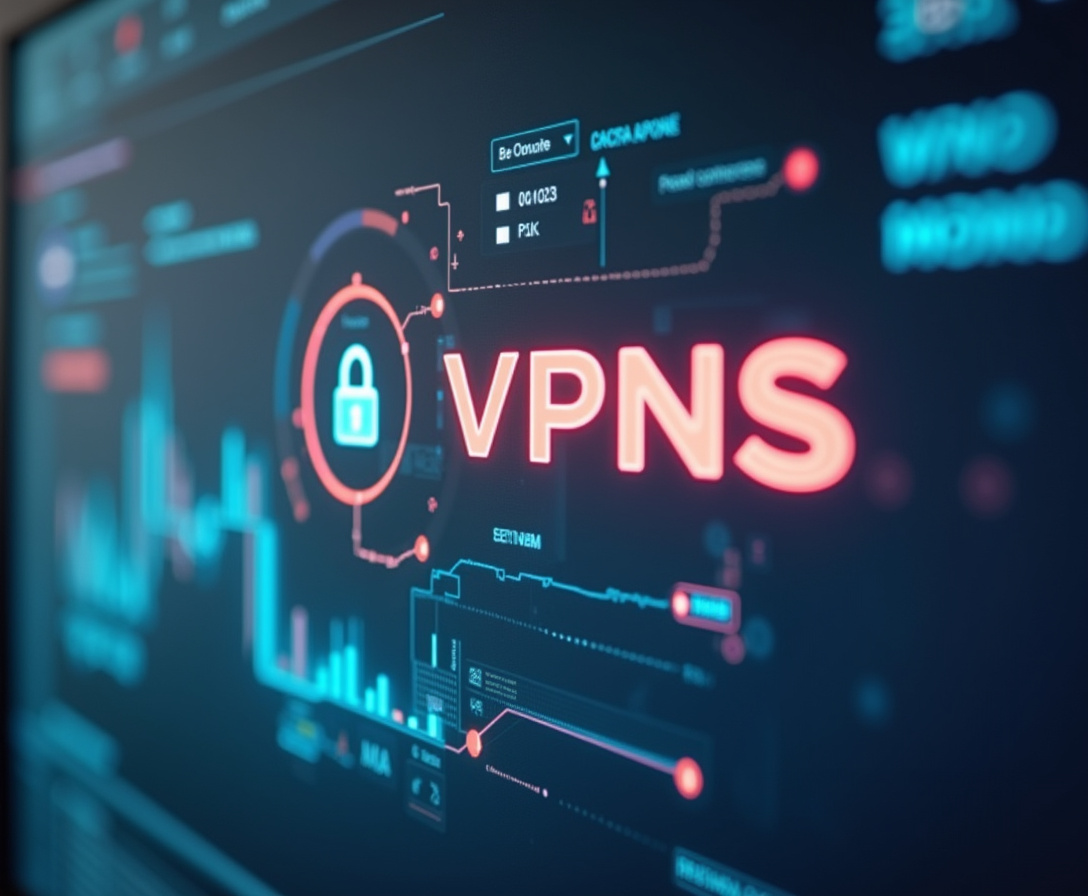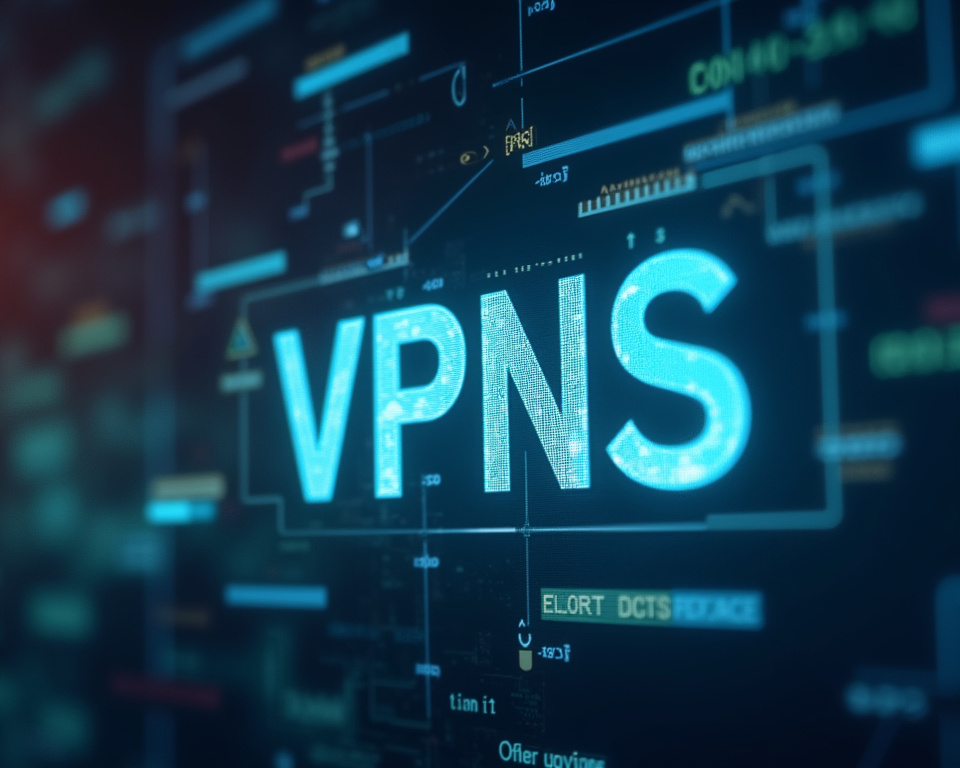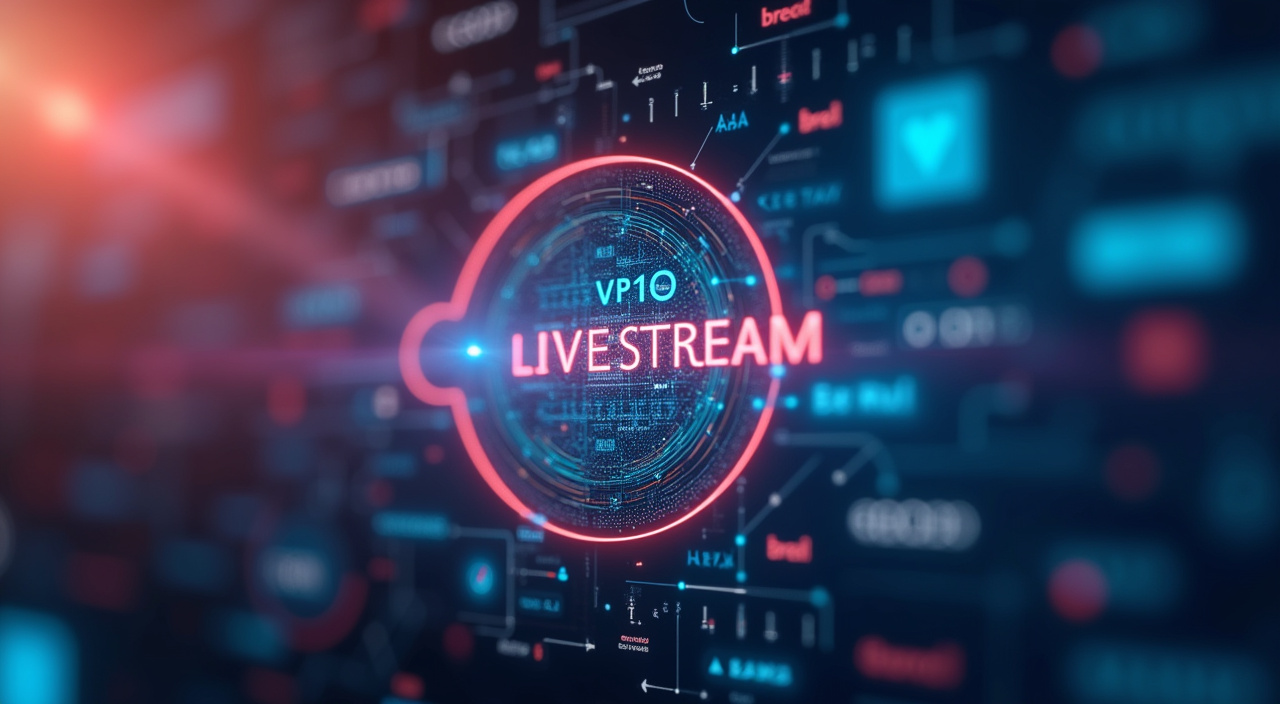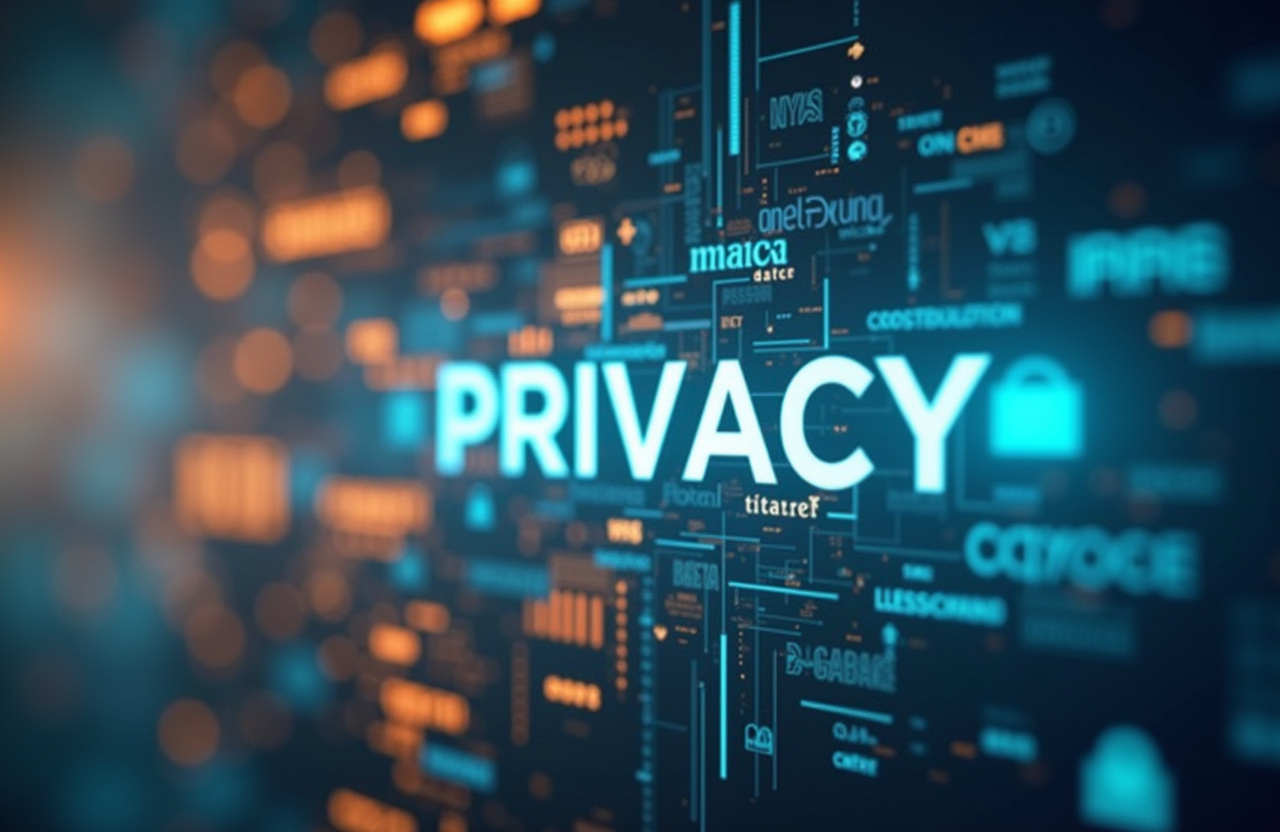VPNs for Virtual Concerts: Ensuring Stream Integrity

Table of Contents
Introduction: The Importance of VPNs for Virtual Concerts
The surging popularity of virtual concerts has revolutionized the music industry, offering artists and fans unprecedented opportunities for connection and engagement across geographical boundaries. These digital events, however, present unique challenges, notably concerning stream integrity, viewer data security, and overall privacy. Ensuring a seamless viewing experience free from interruptions, while simultaneously protecting sensitive user information, is crucial for the success and sustainability of this burgeoning entertainment format.
This is where the strategic implementation of a Virtual Private Network (VPN) becomes not just advantageous, but fundamentally essential. This article delves into the multifaceted role of a virtual concert VPN, exploring how it acts as a robust shield, fortifying the event against potential online threats and guaranteeing a secure, uninterrupted, and private experience for both performers and the audience. A VPN for virtual concerts operates on several critical fronts.
Foremost, it enhances stream integrity, safeguarding the live performance from disruptive forces like Distributed Denial-of-Service (DDoS) attacks. These malicious attacks, designed to overwhelm servers with traffic, can severely impact stream quality, leading to buffering, interruptions, and even complete service outages. A VPN mitigates this threat by masking the origin IP address of the streaming server, making it significantly harder for attackers to pinpoint and target the primary infrastructure.
Furthermore, the VPN distributes traffic across its network of servers, effectively diluting the impact of any potential attack. This decentralized approach ensures that the virtual concert remains accessible and stable, even under duress. Beyond security, a VPN addresses performance issues, working to circumvent bandwidth throttling imposed by Internet Service Providers (ISPs).
ISPs sometimes prioritize specific types of traffic, potentially restricting bandwidth allocated to live streams, especially during peak usage hours. By routing traffic through a VPN server, the stream bypasses these restrictions, maintaining a consistent and optimal performance level. This proactive measure guarantees a smooth, uninterrupted viewing experience regardless of the viewer's geographical location or the overall network conditions in their region.
The ability of the VPN to dynamically optimize routing paths presents yet another advantage. Selecting a VPN server located strategically closer to either the viewer or the streaming server allows data packets to travel along a more efficient route, minimizing latency and improving overall stream quality. This is particularly beneficial for interactive virtual concerts that rely on real-time communication between the artist and the audience, as reduced latency ensures immediate and responsive interactions.
Moreover, a well-architected VPN provides invaluable redundancy. In the event of a network outage or server failure, the VPN can automatically switch to a different server, ensuring continuous stream availability. This automatic failover mechanism minimizes downtime, preventing viewers from missing critical portions of the performance and maximizing their overall satisfaction.
Finally, beyond technical defenses, a VPN underscores a commitment to respecting the audience's fundamental right to online privacy. By encrypting data and masking IP addresses, a VPN assures viewers that their online activity is protected from unwanted surveillance and data collection. This confidence allows individuals to engage with the virtual concert without fear of compromising their personal information, fostering a welcoming and inclusive environment.
The implementation of a virtual concert VPN represents a strategic investment in a superior viewer experience. By providing heightened security, optimal performance, and guaranteed privacy, VPNs ensure that virtual concerts are not only entertaining and immersive but also safe and reliable for all participants, securing the long-term success and growth of this exciting avenue of digital entertainment.
In addition to bolstering stream integrity, a critical function of a virtual concert VPN lies in safeguarding viewer data security. The very nature of virtual events necessitates the collection and storage of personal information. From basic data like email addresses used for registration and event access, to more sensitive details such as payment information required for ticket purchases or merchandise sales, a significant amount of user data is inevitably processed.
This aggregation of personal information makes virtual concerts a potentially lucrative target for cybercriminals, highlighting the paramount importance of robust security measures. A virtual concert VPN provides a vital layer of protection by encrypting all data transmitted between the viewer's device and the VPN server. This end-to-end encryption transforms sensitive data into an unreadable format, effectively preventing eavesdropping and interception by malicious actors who might attempt to intercept the data in transit.
Even if cybercriminals were to successfully intercept the encrypted data, they would be unable to decipher it without the correct decryption key, rendering the information useless and protecting the viewer's privacy. Beyond encryption, a virtual concert VPN plays a significant role in anonymizing viewer data by masking their publicly visible IP addresses. Every device connected to the internet is assigned a unique IP address that can be used to identify the device's approximate geographic location and potentially track online activity.
When a viewer connects to a VPN server, their real IP address is replaced with the IP address of the VPN server, effectively obscuring their true identity and making it significantly more difficult to trace their online activity back to them personally. This anonymization process is especially crucial for viewers in regions with repressive governments or strict internet censorship, where expressing their support for an artist or participating in a virtual event could have potential repercussions. By masking their IP address, the VPN allows these viewers to participate freely and without fear of being monitored or identified.
Furthermore, many VPN providers offer additional security features designed to protect viewers from malware and phishing attacks. These integrated features often include real-time malware detection and blocking, which scans incoming traffic for malicious software and prevents the viewer from accidentally downloading infected files. They also offer phishing protection, which identifies and blocks access to fraudulent websites designed to steal personal information.
These proactive security measures provide an extra layer of defense against common online threats, safeguarding viewers from potential harm and helping to maintain a secure online environment. The strategic implementation of a virtual concert VPN also plays a key role in preventing larger-scale data breaches by isolating the event's infrastructure from the broader public internet. By routing all traffic through a secure and encrypted VPN tunnel, organizers can limit access to sensitive data and prevent unauthorized users from gaining access to the core systems.
This is particularly important for virtual concerts that handle large volumes of sensitive data, such as credit card information or personally identifiable information (PII). By creating a secure and isolated environment, the VPN significantly reduces the risk of data breaches, protecting the privacy of viewers and safeguarding the reputation of the artist and the event organizers. The financial and reputational consequences of a data breach can be devastating, underscoring the importance of taking proactive measures to secure viewer data.
In summary, the use of a virtual concert VPN is not simply a technological add-on, but a strategic imperative for protecting viewer data security. By providing encryption, anonymization, malware protection, and data breach prevention, a VPN ensures that virtual concerts are not only engaging and enjoyable but also safe and secure for all participants. In a world where data privacy is increasingly valued and cyber threats are constantly evolving, investing in a robust VPN solution is essential for building trust with viewers and fostering the long-term success of the virtual concert industry.
Beyond the critical aspects of stream integrity and data security, the use of a virtual concert VPN significantly enhances the overall privacy of attendees. In the contemporary digital landscape, concerns about online privacy are increasingly prevalent. Individuals are becoming more aware of how their data is collected, used, and potentially shared, and are actively seeking ways to protect their personal information and maintain control over their digital footprint.
A VPN directly addresses these concerns by providing a suite of privacy-enhancing features that empower viewers to enjoy virtual concerts with greater confidence and peace of mind. One of the most fundamental privacy benefits of a VPN is its ability to mask a user's real IP address. An IP address is a unique identifier assigned to every device that connects to the internet, and it can be used to determine a user's approximate geographic location and potentially track their online activity.
By routing internet traffic through a VPN server, the user's real IP address is replaced with the IP address of the VPN server, effectively hiding their true location and making it significantly more difficult to track their online movements. This is particularly valuable for individuals who are concerned about being monitored by their ISP, government agencies, or other third parties. Furthermore, a VPN prevents ISPs from monitoring and logging browsing activity.
Without a VPN, ISPs can see which websites a user visits and how much time they spend on each site. This information can be used for a variety of purposes, including targeted advertising, data analysis, and even censorship. By encrypting all internet traffic, a VPN prevents ISPs from seeing the content of the user's online activity, effectively shielding their browsing history and ensuring their privacy.
This is especially important for individuals who value their online anonymity and want to prevent their personal data from being used for commercial or surveillance purposes. In addition to masking IP addresses and encrypting traffic, a VPN can also help to protect against DNS leaks. The Domain Name System (DNS) is used to translate domain names (e.g., google.com) into IP addresses that computers can understand.
When a user visits a website, their computer sends a DNS request to a DNS server to resolve the domain name. However, if the DNS request is not properly protected, it can be intercepted by third parties, revealing the user's browsing activity. A VPN prevents DNS leaks by routing all DNS requests through the VPN server, ensuring that they are encrypted and protected from interception.
This is a crucial step in maintaining online privacy and preventing sensitive information from being exposed. The enhanced privacy provided by a virtual concert VPN has a direct and positive impact on audience engagement. When viewers feel confident that their privacy is being protected, they are more likely to fully participate in the event, including engaging with interactive features, making purchases, and sharing their experiences with others.
This increased engagement can lead to a more vibrant and interactive virtual concert experience for everyone involved. Moreover, the use of a VPN demonstrates a commitment to respecting the audience's fundamental right to privacy, fostering trust and encouraging long-term loyalty. In a world where data breaches and privacy violations are becoming increasingly common, demonstrating a proactive approach to protecting user data is essential for building a strong and positive reputation.
In conclusion, a virtual concert VPN is not just a security tool, but a powerful privacy-enhancing solution that empowers viewers to enjoy virtual events with greater confidence and peace of mind. By masking IP addresses, encrypting traffic, preventing DNS leaks, and demonstrating a commitment to privacy
VPNs for Services: Enhancing Security for Subscription Platforms
The strategic utilization of a VPN for events, specifically virtual concerts, extends beyond mere security and privacy enhancements; it actively contributes to a superior and more engaging audience experience. In a world increasingly saturated with digital content, capturing and retaining audience attention is a paramount challenge. A seamless, high-quality, and secure viewing experience can be a crucial differentiator, influencing audience satisfaction, fostering brand loyalty, and ultimately driving the success of the virtual concert.
One of the most significant ways a VPN enhances audience engagement is by ensuring a stable and reliable stream. Buffering, lagging, and unexpected interruptions are among the most frustrating issues for viewers attempting to enjoy a live virtual concert. These problems can be caused by a variety of factors, including network congestion, bandwidth throttling, and even DDoS attacks, all of which can severely detract from the viewing experience and lead to audience dissatisfaction.
By mitigating these issues, a VPN helps to ensure a consistently smooth and uninterrupted stream, allowing viewers to fully immerse themselves in the performance without distractions. Beyond stability, a VPN can also improve stream quality. Many VPN providers offer servers optimized for streaming, which can help to reduce latency and jitter, resulting in a sharper, clearer, and more visually appealing viewing experience.
This is particularly important for virtual concerts that feature high-definition video and intricate visual effects. By optimizing stream quality, a VPN helps to ensure that viewers are able to fully appreciate the artistic vision of the performers and the production team. Furthermore, a VPN can provide access to geo-restricted content.
Some virtual concerts may only be available to viewers in certain geographic regions due to licensing agreements or other restrictions. A VPN allows viewers to bypass these restrictions by connecting to a server in an allowed region, effectively spoofing their location and granting them access to the content. This is particularly beneficial for fans who live in countries where the concert is not officially available, allowing them to participate in the event alongside their peers around the world.
The ability to access geo-restricted content can significantly increase audience reach and engagement, making virtual concerts truly global events. The increased security and privacy provided by a VPN can also contribute to greater audience engagement. When viewers feel confident that their data is protected and their privacy is respected, they are more likely to participate actively in the event, including engaging with interactive features, making purchases, and sharing their experiences on social media.
This increased engagement can lead to a more vibrant and interactive virtual concert experience for everyone involved. In addition, a VPN can help to prevent harassment and online abuse. By masking their IP address, viewers can protect themselves from being targeted by trolls or other malicious actors who may attempt to disrupt the event or harass other attendees.
This is especially important for virtual concerts that feature interactive elements, such as live chat or Q&A sessions, where viewers are more likely to expose themselves to potential abuse. By providing a safe and secure online environment, a VPN helps to ensure that all attendees can enjoy the event without fear of harassment. By fostering a more positive and inclusive atmosphere, a VPN can significantly enhance the overall audience experience and promote greater engagement.
In summary, the strategic use of a VPN for virtual concerts goes far beyond basic security and privacy. It directly contributes to a superior and more engaging audience experience by ensuring a stable and reliable stream, improving stream quality, providing access to
The Future of VPNs: Integration and Evolving Security Measures
In conclusion, a virtual concert VPN emerges as a critical component for ensuring the success, security, and long-term viability of virtual music events. A robust VPN solution addresses a multifaceted array of challenges, ranging from safeguarding stream integrity against malicious attacks and optimizing performance for a seamless viewing experience, to protecting sensitive viewer data and upholding the fundamental right to online privacy. The benefits of integrating a VPN into the virtual concert ecosystem extend far beyond simple security measures, creating a more engaging, accessible, and trustworthy environment for both artists and audiences alike.
By providing a shield against DDoS attacks, VPNs guarantee a stable and uninterrupted stream, preventing frustrating buffering and interruptions that can detract from the immersive experience. This stability allows viewers to fully engage with the performance, appreciate the artistic vision on display, and connect with fellow fans in a shared virtual space. Furthermore, VPNs contribute to enhanced stream quality by optimizing routing paths, minimizing latency, and circumventing bandwidth throttling imposed by ISPs.
This ensures that viewers receive a high-definition, visually stunning experience that rivals attending a live concert in person. The ability to fine-tune stream quality based on individual viewer locations and network conditions maximizes the potential for audience satisfaction, fostering positive word-of-mouth and driving repeat attendance. The protection of viewer data is another cornerstone of a successful virtual concert, and VPNs provide a crucial layer of security in this regard.
By encrypting all data transmitted between the viewer's device and the VPN server, sensitive information such as payment details and personal identifiers are shielded from prying eyes. This encryption minimizes the risk of data breaches and identity theft, fostering trust and confidence among viewers. The anonymization of IP addresses provided by VPNs further enhances privacy, protecting viewers from potential tracking and surveillance.
This is particularly important for individuals in regions with strict internet censorship or surveillance regimes, allowing them to participate in virtual concerts without fear of reprisal. By demonstrating a commitment to protecting user privacy, virtual concert organizers can cultivate a loyal fanbase and attract a wider audience from diverse geographic locations. Moreover, VPNs transcend geographical limitations, granting access to geo-restricted content and enabling a truly global audience.
This inclusivity allows fans from all corners of the world to participate in the virtual concert, fostering a sense of community and shared experience. By breaking down barriers and connecting people through music, virtual concerts powered by VPNs can transcend cultural divides and create a more inclusive and welcoming environment for everyone. The long-term impact of VPN adoption on the virtual concert industry is significant.
By prioritizing security, privacy, and audience engagement, virtual concert organizers can build trust, foster loyalty, and attract a growing audience base. This sustainable approach will enable the virtual concert industry to flourish, providing artists with new avenues for creative expression and connecting them with fans in innovative and meaningful ways. As technology continues to evolve, VPNs will undoubtedly play an increasingly important role in shaping the future of virtual entertainment, ensuring that these events remain secure, accessible, and engaging for audiences around the world.
The investment in a virtual concert VPN is therefore not merely an expenditure but a strategic imperative for ensuring the longevity and success of this exciting new frontier in the music industry, safeguarding stream integrity and enhancing audience engagement for years to come.
Stay Updated
Get the latest VPN news, tips, and exclusive deals to your inbox.




